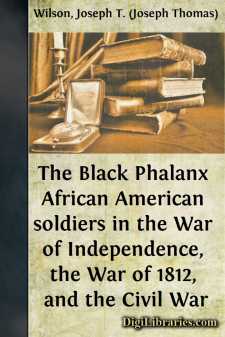Categories
- Antiques & Collectibles 13
- Architecture 36
- Art 48
- Bibles 22
- Biography & Autobiography 815
- Body, Mind & Spirit 144
- Business & Economics 28
- Children's Books 18
- Children's Fiction 14
- Computers 4
- Cooking 94
- Crafts & Hobbies 4
- Drama 346
- Education 58
- Family & Relationships 59
- Fiction 11833
- Games 19
- Gardening 17
- Health & Fitness 34
- History 1378
- House & Home 1
- Humor 147
- Juvenile Fiction 1873
- Juvenile Nonfiction 202
- Language Arts & Disciplines 89
- Law 16
- Literary Collections 686
- Literary Criticism 179
- Mathematics 13
- Medical 41
- Music 40
- Nature 179
- Non-Classifiable 1768
- Performing Arts 7
- Periodicals 1453
- Philosophy 65
- Photography 2
- Poetry 896
- Political Science 203
- Psychology 44
- Reference 154
- Religion 515
- Science 126
- Self-Help 85
- Social Science 82
- Sports & Recreation 34
- Study Aids 3
- Technology & Engineering 59
- Transportation 23
- Travel 463
- True Crime 29
Our website is made possible by displaying online advertisements to our visitors.
Please consider supporting us by disabling your ad blocker.
The Black Phalanx African American soldiers in the War of Independence, the War of 1812, and the Civil War
Description:
Excerpt
PREFACE.
It was a dark, stormy night in the winter of 1882, when less than a hundred men, all of whom had served their country in crushing the great Rebellion of 1861-'65, gathered around a camp-fire. The white and the colored American were there; so were the German, Frenchman, and Irishman,—all American citizens,—all veterans of the last war. The empty sleeve, the absent leg, the sabred face, the bullet-scarred body of the many, told the story of the service they had seen. It was the annual Encampment of the Department of Virginia, Grand Army of the Republic, and the comrades of Farragut Post had tastefully arranged their quarters for the occasion.
At midnight a sumptuous soldiers fare—baked beans, hot coffee and hard tack—was spread before the veterans, who ate and drank heartily as in the days when resting from the pursuit of the enemy. In the morning hour, when weary from the joy of song and toast, it was proposed that the history of the American negro soldier should be written, that posterity might have a fuller and more complete record of the deeds of the negro soldiers than had been given in the numerous already published histories of the conflicts in which they played so important a part.
The task of preparing the history fell to my lot, and it is in obedience to the duty laid upon me by my former comrades, with whom I shared the toils and joys of camp, march, battle and siege, that this volume, the result of my efforts, is launched upon the sea of war literature.
Whether or not there is any merit in the work, the reader must judge. His charity is asked, however, toward such defects as may be apparent, and which, perhaps, might be expected in the literary work of one whose life has been largely spent amid the darkness of the South American countries and the isolation of the South Sea Islands. It was not until May, 1862, while domiciled at the capitol of Chili, that I first learned of the war in the United States, when, hastening to this country, I fell into the ranks with the first negro soldiers that left the Touro Building at New Orleans, in November, 1862, and marched out on the Opelousas road, to serve in defence of the Union.
With whatever forebodings of failure I entered upon the work of collecting the literature of the war, from which to cull and arrange much of the matter contained herein,—which has required years of incessant search and appeal,—I can but feel that it has been thoroughly done. The public libraries of the cities of Boston, Cincinnati, New Bedford, New York, the War Department at Washington, and the private libraries of several eminent citizens, have alike been made use of by me.
It seemed proper, also, that the memory of our forefathers should not be allowed to remain in longer obscurity; that it was fitting to recall their deeds of heroism, that all might know the sacrifices they made for the freedom their descendants were so long denied from enjoying. In gathering together the scattered facts relating to the negroe's participation in the wars of 1775 and 1812, difficulties well-nigh insurmountable have been overcome, and it has been only through patient and persistent effort that I have been able to prepare the chapters devoted to the early wars of the United States....


